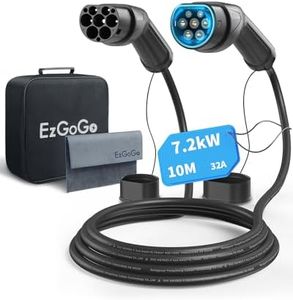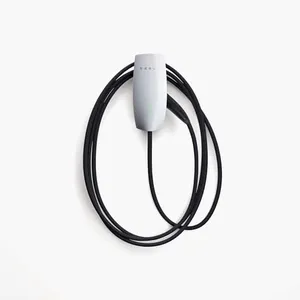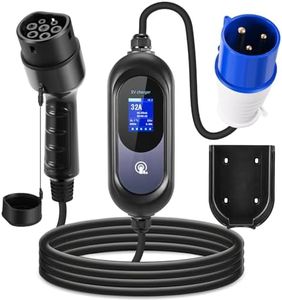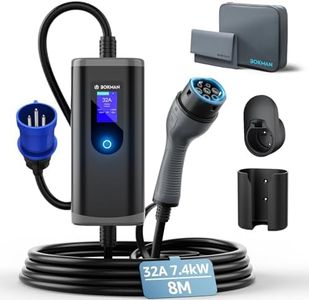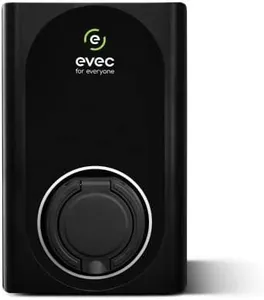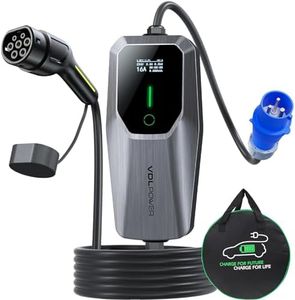We Use CookiesWe use cookies to enhance the security, performance,
functionality and for analytical and promotional activities. By continuing to browse this site you
are agreeing to our privacy policy
10 Best Ev Chargers
From leading brands and best sellers available on the web.Buying Guide for the Best Ev Chargers
Choosing the right EV charger is crucial for ensuring that your electric vehicle is always ready to go when you need it. There are several key specifications to consider when selecting an EV charger, and understanding these can help you make an informed decision that best suits your needs. Whether you're looking for a charger for home use or for a commercial setting, knowing what to look for will ensure you get the most efficient and effective charging solution.Charging SpeedCharging speed, often measured in kilowatts (kW), determines how quickly your EV can be charged. This is important because it affects how long you'll need to wait for your vehicle to be ready. Chargers typically come in different speeds: Level 1 (slow, using a standard household outlet), Level 2 (moderate, using a 240V outlet), and DC fast chargers (very fast, often found in commercial settings). If you need quick top-ups during the day, a faster charger might be necessary, whereas overnight charging can be done with slower chargers.
Connector TypeThe connector type refers to the plug that connects the charger to your vehicle. Different EVs may require different connectors, such as Type 1 (J1772), Type 2 (Mennekes), or CCS (Combined Charging System). It's important to ensure that the charger you choose is compatible with your vehicle's connector type. If you have multiple EVs or plan to get a different model in the future, a charger with multiple connector options might be beneficial.
Installation RequirementsInstallation requirements include the electrical setup needed to install the charger. Some chargers can be plugged into a standard outlet, while others may require a dedicated circuit or professional installation. Understanding the installation requirements is crucial to ensure that your home or business can support the charger you choose. If you're not comfortable with electrical work, opting for a charger that requires minimal installation might be best.
Smart FeaturesSmart features in EV chargers include capabilities like Wi-Fi connectivity, app control, and energy monitoring. These features can provide convenience and efficiency, allowing you to schedule charging times, monitor energy usage, and even integrate with smart home systems. If you value having control and insights into your charging habits, a charger with smart features would be a good choice.
PortabilityPortability refers to how easily the charger can be moved or transported. Some chargers are designed to be permanently installed, while others are portable and can be taken with you. If you travel frequently or need to charge your vehicle at different locations, a portable charger might be more suitable. On the other hand, if you primarily charge at home, a stationary charger could be more convenient.
Durability and Weather ResistanceDurability and weather resistance are important if you plan to install the charger outdoors or in a location exposed to the elements. Chargers with higher durability and weather resistance ratings will last longer and perform better in harsh conditions. If your charger will be outside, look for one that is specifically designed to withstand rain, snow, and extreme temperatures.
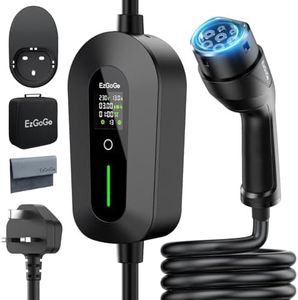
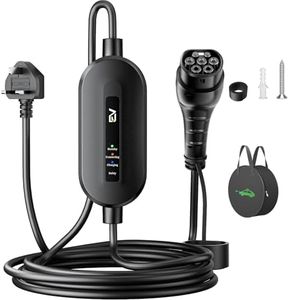


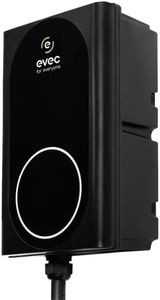

![LCLCTEK EV Charger Cable Type 2 to 3 Pin Plug 8-meter, Portable UK 3 Pin EV Charger,Electric Car Charger [6/8/10/13A], 2.99KW Car-Charger with LED Display, IP65 Waterproof,Type 2 Cable EVs and PHEV](https://images-proxy.bestreviews.guide/EdcNq5o0S9CLoRhUi80ZBh0SCIM=/0x300/https://m.media-amazon.com/images/I/41fGG0VLDmL._AC_CX679_.jpg)
